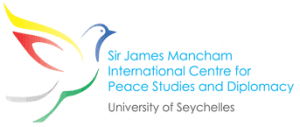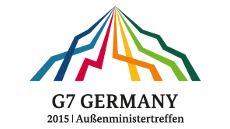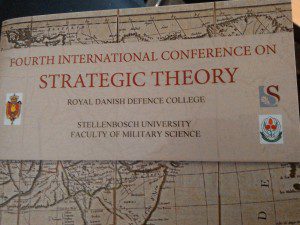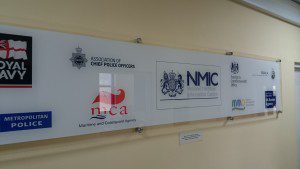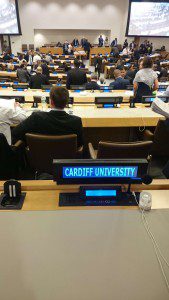 On December 14th the G7 held a High Level Meeting on Maritime Security under the presidency of Germany. The meeting titled “Enhancing Maritime Security – Connecting Regions – Governing the Commons was a follow up to the Lübeck Declaration on Maritime Security of the G7 Foreign Ministers from April this year. At the one day event over 150 experts discussed four vital themes in maritime security: Maritime domain awareness and information sharing, maritime dispute settlement, illegal fishing, and the role of regional organizations in the provision of maritime security. I had the pleasure to participate in the meeting and chair the roundtable on regional organizations. The roundtable featured representatives from the International Maritime Organization, the Indian Ocean Rim Association, as well as the government of Togo which is currently organizing a major African Union summit on the theme. In the closing discussion I presented a summary of the roundtable themes. I stressed four vital points for furthering the discussion on maritime security.
On December 14th the G7 held a High Level Meeting on Maritime Security under the presidency of Germany. The meeting titled “Enhancing Maritime Security – Connecting Regions – Governing the Commons was a follow up to the Lübeck Declaration on Maritime Security of the G7 Foreign Ministers from April this year. At the one day event over 150 experts discussed four vital themes in maritime security: Maritime domain awareness and information sharing, maritime dispute settlement, illegal fishing, and the role of regional organizations in the provision of maritime security. I had the pleasure to participate in the meeting and chair the roundtable on regional organizations. The roundtable featured representatives from the International Maritime Organization, the Indian Ocean Rim Association, as well as the government of Togo which is currently organizing a major African Union summit on the theme. In the closing discussion I presented a summary of the roundtable themes. I stressed four vital points for furthering the discussion on maritime security.
The Luebeck declaration already highlighted the importance of the global oceans for economic prosperity. Further elaborating the link between maritime security and the blue economy is vital for promoting security at sea. If maritime security stands for the risks presented by the oceans, the blue economy emphasizes its opportunities. Recognizing the economic potential of the sea will enable to address the problem known as “sea blindness” and to present a convincing case to national publics, governments and states, including landlocked states, that maritime security is a priority area that needs investment and the will to cooperate.
Maritime security does not have a clear institutional home. It is an Inter-agency challenge and requires military-civil and inter-sectional cooperation. Stronger institutions at the country, regional as well as global level are required. But there is also the need to better clarify roles and responsibilities of each level. Country ownership is vital, yet, maritime security is a transnational challenge and many states will require assistance through capacity building and technology transfer from the international community. The G7 will continue to play an important role in driving the discussion on the global maritime security architecture forward and clarifying the rules and responsibilities of different national, regional and global institutions.
If maritime security requires better cooperation between states, trust and confidence building mechanisms, in particular at the regional level, are the key. There is clear evidence for the importance of mechanisms which include, but are not limited to, informal governance processes, such as the Contact Group on Piracy off the Coast of Somalia, Codes of Conduct, such as those signed in Djibouti and Yaounde, joint exercises, but also intra-regional transfer of skills and technology, through capacity building, training, education and research. These mechanisms should be strengthened to build regional maritime security communities.
The fight against piracy is not over yet. Both the Gulf of Guinea and the situation in the Gulf of Aden will require continued attention and sustained efforts of the international community. The regional maritime security architecture in both regions will need to be strengthened. The participants welcomed the financial contribution of Germany for the implementation of the Yaounde Code of Conduct and the efforts of the government of Togo in preparing the Lome Summit on maritime security and development. In particular the Lome Summit of the African Union to be held next year will be an important milestone for African maritime security and ensuring that all forms of maritime crime in the continents waters will be effectively addressed.
The participants welcomed the strong leadership of the G7. The Luebeck declaration presented an important step for the discourse on maritime security. It was, however, emphasized that if the 21st century is a maritime century, the current discussion can only be the beginning. Sustained efforts in particular on elaborating the future of the global maritime security governance architecture will be required and the dialogue among maritime security experts, including university based scholars, needs to be intensified.
